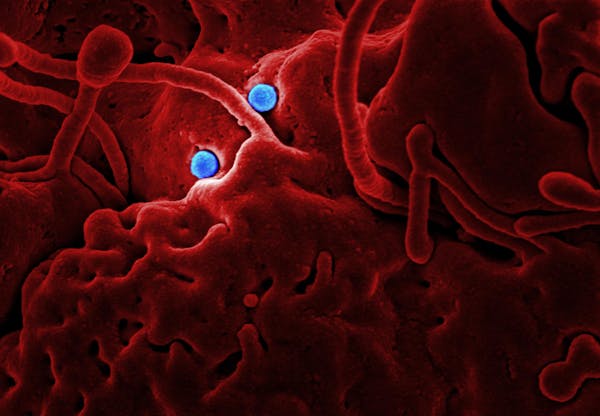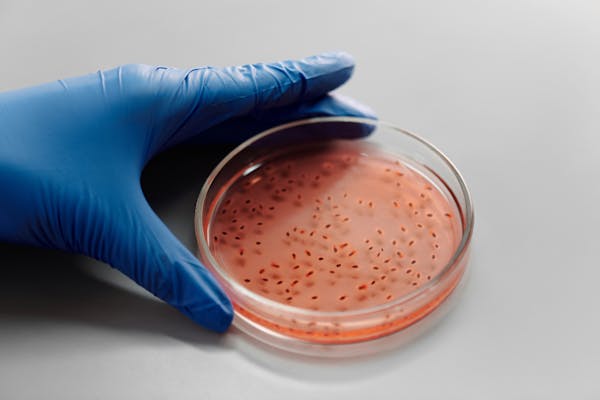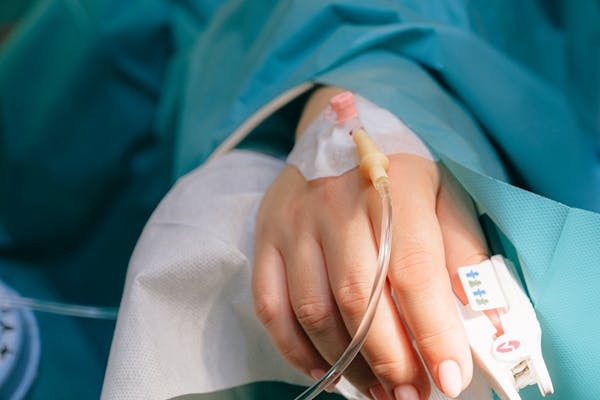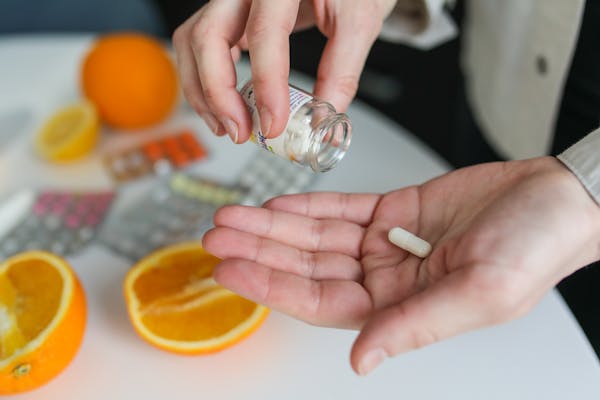Are You Suffering from Antibiotic Resistant Bacteria? Here's What You Need to Know
Antibiotic resistant bacteria are bacteria that have developed resistance to antibiotics, making them more difficult to treat than traditional bacterial infections. In fact, these dangerous pathogens make more than 2 million people sick every year in the United States alone! Antibiotic resistant bacteria symptoms and treatment can vary from patient to patient, so it’s important to know what to look out for and how to get the best possible care when symptoms arise. This guide will help you determine whether or not you need antibiotic treatment, give you information about antibiotic resistant bacteria symptoms, and lead you toward safe and effective treatments that will improve your health and well-being!
Introduction of antibiotic resistance bacteria.
Antibiotics have been used for decades to effectively treat bacterial infections. Unfortunately, it has come out in recent studies that antibiotics have become less and less effective over time due to the increase of antibiotic-resistant bacteria. It is important for you as a patient not only know what antibiotic resistant bacteria is but also be aware of its symptoms and treatment options available. You should also be cautious when taking antibiotics so that your body doesn't build up an immunity to them and can then spread these resistance genes to other people around you who are more vulnerable.
Some tips include staying away from raw meat (such as hamburgers) because it could carry the bacterium on its surface, hand washing after going to public places such as bathrooms or parks, and limiting antibiotic use only when needed.
What are antibiotic resistant bacteria?
Antibiotic resistant bacteria are strains of bacteria that have evolved the ability to resist antibiotics, which makes them very difficult to treat. These types of bacteria are not new- they have been around for over a hundred years, but their prevalence has been on the rise in recent years and it seems that there is no end in sight. The most common type of antibiotic resistant bacteria is MRSA, or methicillin resistant Staphylococcus aureus. Unfortunately, MRSA can cause infections in many parts of the body, including skin wounds and surgical sites. There are many ways to contract MRSA; people who spend time with others who carry this strain of bacteria (such as family members) or those who work closely with animals that carry this strain may be more at risk than others. In cases where an infection isn't treated immediately, it can spread quickly throughout the body- causing more pain and complications than if left untreated.
Causes of antibiotic resistance.
The overuse of antibiotics is one of the most common causes of antibiotic-resistant bacteria. When a person takes an antibiotic for an infection, some types of bacteria may survive and reproduce, creating more resistant bacteria. Over time, this can make it difficult to find effective treatments.
As well as being ineffective in preventing infections and making them harder to treat, the resistance can be spread through close contact with someone who has been taking or received an antibiotic.
The best way to avoid these consequences is by only using antibiotics when necessary and following your doctor’s instructions about what kind of medication should be used for what type of infection.
Common symptoms.
Some of the most common symptoms of antibiotic resistant bacteria are: fever, chills, nausea, vomiting, diarrhea, sore throat and rash. Other symptoms may include abdominal pain and cramping as well as joint pain. If you're experiencing any of these symptoms, don't wait to see a doctor! Antibiotic-resistant infections can be life-threatening. Treatment includes taking antibiotics (if possible) or other medications such as TMP/SMX or amoxicillin, depending on the type of infection that is present. For example, if someone has an E. coli infection, they would take ciprofloxacin and for someone with MRSA they would take trimethoprim-sulfamethoxazole. In some cases surgery may also be needed to remove an infected organ in order to prevent complications or death.
You can also avoid antibiotics by using these health tips which helps to stay fit, and never fall you sick.
If you're suffering from antibiotic resistant bacteria, it can be difficult to know what the best course of treatment is. Different antibiotics work in different ways and some are more effective against certain bacteria than others. Talk with your doctor about a plan that will help you get back on your feet as quickly and effectively as possible! There's no need to let yourself suffer while waiting for your prescription - there are over-the-counter medications that may provide relief until you can get an appointment. For immediate relief, ask your pharmacist for advice or try taking aspirin or ibuprofen.
Antibiotic resistance is a growing problem in the U.S. and worldwide, as bacteria are becoming increasingly resistant to traditional treatment methods. Antibiotics work by destroying bacteria cells, but when bacteria stop responding to antibiotics, it becomes difficult for doctors and medical professionals to treat illnesses and diseases caused by these bacteria. Fortunately, there are preventive measures you can take to avoid contracting antibiotic-resistant bacteria.
The best way to protect yourself against antibiotic-resistant bacterial strains is to avoid contact with them altogether! Do not drink unpasteurized milk or dairy products or eat undercooked meat.
If you are feeling ill and have a fever, it is important that you see a doctor as soon as possible. Doctors can treat your symptoms with antibiotics and other medications to help you get better faster. It is also important for doctors to take cultures of the bacteria that has made you sick. This will tell them what kind of antibiotic resistant bacteria they are dealing with, so they know what type of antibiotic should be used. The Centers for Disease Control recommend fluoroquinolones, azithromycin or doxycycline if someone is infected with drug-resistant gonorrhea. These drugs should only be given after consultation with an infectious disease specialist. If a person cannot be treated by one of these three types of drugs, then they may need to receive treatment intravenously through an IV in the hospital which may last up to 28 days or longer.
Antibiotic resistant bacteria are a growing problem. The best way to prevent these bacteria is by using antibiotics responsibly, which means only taking them when you need them and finishing the prescription even if you feel better. If you do have a bacterial infection, it is important that you take all of the prescribed antibiotics as directed so that the infection can be cleared up and won't become antibiotic resistant. However, it is also very important that you keep your immune system strong. That means eating a healthy diet with plenty of fruits and vegetables and getting enough sleep, exercise and relaxation.
Treatment options.
If you're suffering from antibiotic resistant bacteria, it can be difficult to know what the best course of treatment is. Different antibiotics work in different ways and some are more effective against certain bacteria than others. Talk with your doctor about a plan that will help you get back on your feet as quickly and effectively as possible! There's no need to let yourself suffer while waiting for your prescription - there are over-the-counter medications that may provide relief until you can get an appointment. For immediate relief, ask your pharmacist for advice or try taking aspirin or ibuprofen.
Prevention from antibiotic resistance bacteria.
Antibiotic resistance is a growing problem in the U.S. and worldwide, as bacteria are becoming increasingly resistant to traditional treatment methods. Antibiotics work by destroying bacteria cells, but when bacteria stop responding to antibiotics, it becomes difficult for doctors and medical professionals to treat illnesses and diseases caused by these bacteria. Fortunately, there are preventive measures you can take to avoid contracting antibiotic-resistant bacteria.
The best way to protect yourself against antibiotic-resistant bacterial strains is to avoid contact with them altogether! Do not drink unpasteurized milk or dairy products or eat undercooked meat.
When to see a doctor.
If you are feeling ill and have a fever, it is important that you see a doctor as soon as possible. Doctors can treat your symptoms with antibiotics and other medications to help you get better faster. It is also important for doctors to take cultures of the bacteria that has made you sick. This will tell them what kind of antibiotic resistant bacteria they are dealing with, so they know what type of antibiotic should be used. The Centers for Disease Control recommend fluoroquinolones, azithromycin or doxycycline if someone is infected with drug-resistant gonorrhea. These drugs should only be given after consultation with an infectious disease specialist. If a person cannot be treated by one of these three types of drugs, then they may need to receive treatment intravenously through an IV in the hospital which may last up to 28 days or longer.
Conclusion.
Antibiotic resistant bacteria are a growing problem. The best way to prevent these bacteria is by using antibiotics responsibly, which means only taking them when you need them and finishing the prescription even if you feel better. If you do have a bacterial infection, it is important that you take all of the prescribed antibiotics as directed so that the infection can be cleared up and won't become antibiotic resistant. However, it is also very important that you keep your immune system strong. That means eating a healthy diet with plenty of fruits and vegetables and getting enough sleep, exercise and relaxation.

.png)







